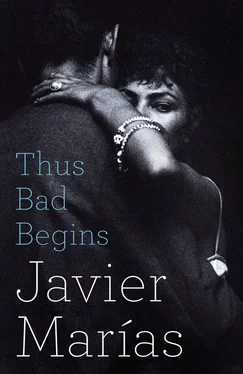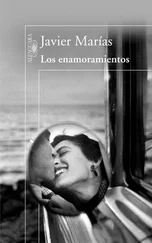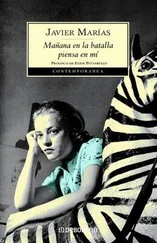I felt awkward talking about such things, still less pretending I was a womanizer, it wasn’t my style. I could see that the truth — something normal, something modest, although I certainly had no complaints in that regard — would have disappointed them, especially Van Vechten, the most febrile, the most eager, the most gullible. I found his old-school fantasies depressing and rather pathetic, not so very different from those of adolescents crowding round the pioneer who claims to have already had certain sexual experiences and is prepared to describe them in detail, in the playground, to a credulous because ignorant audience, which expects and even demands lies and exaggerations, because without them no story is worth listening to. His fantasies struck me as somewhat pitiful or creepy. There were two women present, lovers or friends or rather ex-lovers of the actor or the bullfighter or of both, who were not playing cards, but were there to provide company or decoration and were keeping each other amused; every now and then, Van Vechten’s eyes would swivel over to them, for they were both wearing tight skirts and showing quite a lot of leg, greatly enhanced by their high heels. I noticed that they had stopped talking to each other and were awaiting my answer, which made me feel even more embarrassed than if there had been only men present; we speak more freely and feel less absurd in exclusively male encounters. I hesitated. Then I remembered that many women don’t normally mind a man or a youth having such multiple adventures. On the contrary, they admire him in an imaginary way and feel intrigued, it can even be an incentive to them to become one of those adventures, either at once or at some future date, as if they made a mental note: ‘He’s a sexy guy and popular with women, better bear that in mind and not discount him.’ I saw that Muriel was also awaiting my response. He would never have asked such a question himself (he did not sail in those particular waters), but now that someone else had asked, he was hoping I would provide his friends with some satisfaction and amusement, as if, having brought me with him, I were his responsibility. And so when my silence grew somewhat lengthy, creating an unnecessary sense of expectation, he decided to prompt me:
‘What’s wrong, lad, has the cat got your tongue? You’re being awfully coy. Don’t let me down now, answer the Doctor, he wants to know what you young people get up to with your limitless freedom.’
I decided it would be best to lie. In order to make those grown men green with envy, which is what they wanted: to be amazed and to bemoan their having been born too soon. To arouse the imaginations of the two thirty-something women, who would see me as an indefatigable near-child, possibly a demon between the sheets. To please my employer, who had deemed me worthy of being present, along with the grown-ups. After all, we were there to have a good time, it was a jolly occasion.
‘Well, in a good month, as you put it, Doctor,’ I said at last (despite his protests, I addressed him as ‘Doctor’ at first, although not, of course, once he started accompanying me to places where he would never have gone alone), ‘I’ll have seven or eight, never less than that. In a slow month, three or four.’ And I think I must have visibly blushed, more at my own brazen deceit than for any other reason. They probably thought I was blushing at this confession of my own greed.
There was a murmur of voices around me, the odd whistle of astonishment, I was, for a moment, the centre of attention. The bullfighter and the actor must have felt their own glorious past lives as ladykillers somewhat diminished. Muriel, I thought, looked half-surprised, half-pleased (‘That many, eh?’ he said paternally). The two women exchanged glances, raised their eyebrows, and then uncrossed and crossed their legs at the same time (a flash of thighs), as if this were a dance routine they had rehearsed or as if they were twins. Van Vechten’s eyes almost popped out of their sockets and he repeatedly tugged at his tie and then again at the knot in order to straighten it, it was a gesture he made whenever he was agitated or excited at some interesting prospect or promise. Most striking of all was that no one showed the least scepticism, they clearly didn’t know the world, however long they had been in it, or knew only the world of their youth, the only one we understand naturally and effortlessly: in life we experience a little of what will happen after our death, when time leaves us behind at such incredible speed and transforms us into the remote past and lumps us together with the antiquities. When still alive, we realize that we cannot possibly keep up, we get left behind and waste our energy and begin to grow weary of so much change and tell ourselves: ‘This is where my age ends, I’m not going to bother with the next one, it doesn’t belong to me; I’ll pretend as best I can, but I’m fast becoming an anachronism and outstaying my welcome.’ Things would have been minimally different had Professor Rico been there. Not because he knew the world any better, not at all, but because he would never have allowed himself to appear to be impressed with witnesses present and would have come out with some scornful comment: ‘Ha, a mere bagatelle’ or ‘Is that all?’ or even ‘And you call that a good month, young De Vere? I thought you were more competent, more adept.’ But he wasn’t in Madrid that night, and so no one called my bluff, and Van Vechten, the most inclined to believe what I had said and impressed by the sheer scale of it, tried to draw me out, with the acquiescence of the others as a background rumble.
‘Come on, then, tell us all,’ said the Doctor, highly excited, as if this were the beginning of another party. ‘Ages? Places? Settings? And where do you pick them up?’ The expression ‘pick them up’ betrayed his view of these encounters, the old world to which he belonged. ‘Do you stick with girls your own age or are you happy with anyone who isn’t actually old? I imagine you have your limits. When you’re spoiled for choice, you have to, at least that’s how it was for me when I was your age.’ He glanced across at the two women, some comment dancing on the tip of his tongue, I feared the worst, some unpleasantly vengeful remark, because they gave no response, either visual or verbal. I was afraid he might say something like: ‘Those two lovely ladies over there, for example, would have seemed old to me at the time, but now I’d quite happily screw them.’ Fortunately, he said nothing, but, given the context, that glance in itself seemed crude and inappropriate. They were quite attractive, those two ex-lovers of the actor or the bullfighter, one rather coarse, the other more delicate. They didn’t deserve to be belittled like that, not even hypothetically or retrospectively. They had noticed Van Vechten’s sidelong glance and understood its meaning. They exchanged another subtle look as if to check that they were in accord, then they uncrossed and crossed their legs again, not, this time, as a mark of their approval of me, the young man, but as a reproof to that man in the autumn of his years. The Doctor was often impertinent and expansive and not fully aware of his age because it was not as yet apparent on his still unlined face or on his still agile body; his lack of tact meant that one had to give him more than the usual amount of leeway.
I was not prepared to continue along the path he was suggesting. It was one thing to lie briefly about numbers, as a joke and so as not to disappoint, but quite another to provide detailed descriptions and accounts, continuously, inevitably, boastfully, even if it was all invented. There was something unpleasant and unsavoury about his questions, however jovial or jokey his tone; a lack of respect for women which, even though it was pretty much the norm in many areas of life, both Spanish and non-Spanish, both then and now, nonetheless troubled me. Not that I didn’t occasionally slip into that mode myself (I’m not going to pretend I’ve always been the perfect gentleman), but he went too far, he teetered on the edge of abuse, or, rather, that was his normal mode. Having daughters cures one of that involuntary or reflex disdain that far too many of us men inherit. In the Doctor, it was deliberate; even though, as I found out later, he himself had sons and daughters, he had never moved on from that instinctive disdain.
Читать дальше












